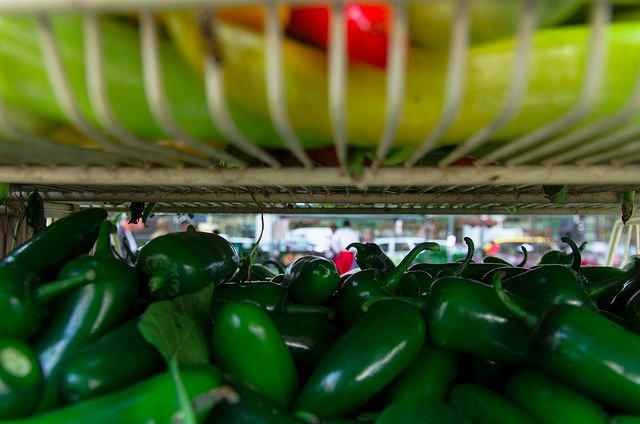Public Housing Unit-Turned Grocery Store Hopes To Fix Food Desert Issue
By Rachel Cromidas in Food on Jun 25, 2015 5:20PM
Could a public housing complex unit-turned grocery store alleviate the food desert problem in Ford Heights, a poor, suburban community that lacks affordable groceries?
It's a small start, Chicago Housing Authority officials say, but one that, if successful, could change the way public housing residents in Chicago and beyond access fresh food.
The grocery store opened Wednesday in a Ford Heights public housing project at 11th Street and Berkeley Avenue. It's run by Crisp Fresh Market, a for-profit arm of Catholic Charities, in partnership with the CHA, housing officials told reporters.
The 600 square-foot store is located inside an unused apartment in the 100-unit complex. It sells produce such as zucchini, tomatoes, mushrooms and iceberg lettuce, and offers $10.39 an hour jobs to public housing residents, according to the Tribune. There are also shelves of cereal, condiments, canned foods and cleaning items, selected by Crisp with the input of residents, according to Jonathan Wittig, it's director. Wittig hopes the store will serve as a model for future grocers in public housing.
"This is our first store, but we hope to add more in other communities that are food deserts down the line," he told the Tribune.
Chicago has long-struggled to fix its food deserts—neighborhoods where residents cannot easily buy fresh food because of a lack of affordable grocery stores within walking distance to their homes and a lack of public transportation. And no, a convenience store that stocks primarily packaged snacks and soda doesn't count. But nearly a decade after a landmark study on the area's food deserts defined the scope of the problem, the city is still struggling to find long-lasting and wide-reaching solutions.
Some advocates believe the solution will not be one-size fits all in this case. That means that, while community gardens might work in some areas, and the unlikely opening of a Whole Foods Market might work in another, it will take multiple approaches to alleviate food deserts for good.
The test of Crisp's success will be whether residents actually use it. So far, the people the Tribune interviewed are optimistic:
"It takes me 30 minutes by bus to get to the nearest grocery store," said Gerell Jimerson, 30, a resident of Cook County's Vera Yates Homes, who volunteered his time to paint the door, shutters and interior of the store, while planting window boxes and cutting the grass outside. "It was something I wanted to do as a resident of the community because we're proud and happy to have this store open here."
